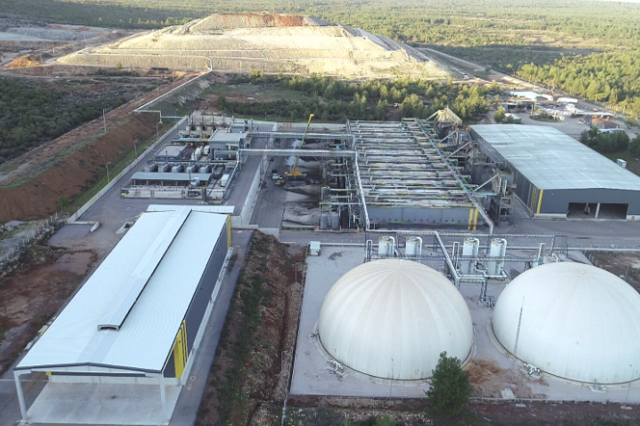Biogas from MSW /Organic Waste
Dry Fermentation Technology by AAT Austria with several reference plants

Biogas Production from MSW
Dry Fermentation Technology by AAT Austria with several reference plants

Biogas from MSW through Dry Fermentation Technology
The AAT-ANKA system utilizes continuous dry fermentation technology designed for the treatment of organic waste. This system offers capacities starting from 200 tons per day (TPD), with largest plant currently processing 3,800 TPD . The dry fermentation process is highly efficient, allowing the production of biogas in a controlled environment while minimizing the risk of odor and leachate problems associated with traditional wet fermentation methods.
AAT is not only well known for its state-of-the-art biogas plants but also for after sales support throughout the life span of their biogas installations.
With more than 100 biogas plants built and operating in over 25 countries and with 30 years of experience in this specialized field, AAT is committed to continued in-house research and development by highly motivated staff which in turn verify their success.
The advantages of AAT ‘s DRY Fermentation Technology:
- Low maintenance: Dry fermentation has few moving parts, low wear and tear, and doesn't require agitators, pumps, or feeding pipes. It eliminates the need for pre-treatment or sorting of inputs.
- Low energy consumption: Dry fermentation processes consume less energy than wet anaerobic digestion.
- High gas yields: Dry fermentation can produce high gas yields with superior gas quality.
- Waste volume reduction: Dry fermentation can reduce waste volume by up to 60% at a lower cost than wet processing.
- Substrate tolerance: Dry fermentation systems can tolerate substrates with a high content of crop residues, household waste, and livestock manure. They can also handle dry, stackable biomass with a high percentage of solids (20-55% DM – dry matter).
- Contaminant tolerance: Dry fermentation systems are very tolerant of contaminants such as sand, fibers, glass, plastics, and large particles.
- Cost advantages: Dry fermentation can have additional cost advantages if water there are shortages.
The Importance of Biogas Production
With India generating approximately 65 million tons of MSW annually, the need for effective waste management solutions has never been more urgent. Biogas production not only helps in reducing the volume of waste sent to landfills but also provides a renewable energy source that can power homes, industries, and even vehicles.
